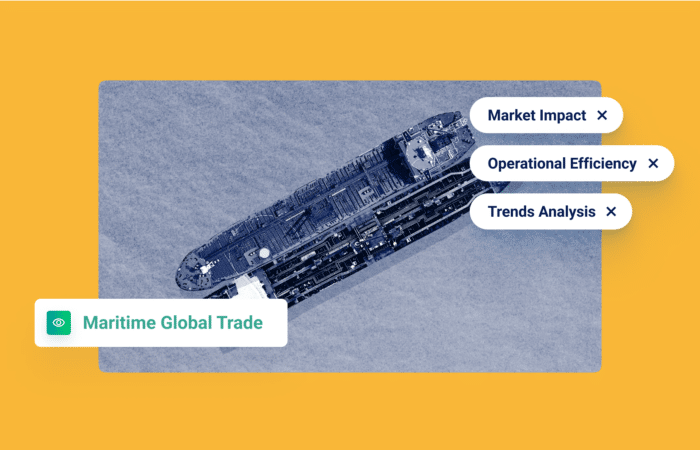What’s inside?
The Biden administration eased sanctions on Venezuela’s oil exports in a surprising move. A new general license issued by the U.S. Treasury Department authorized OPEC member Venezuela, which had been under crushing sanctions since 2019, to produce and export oil to its chosen markets for the next six months without limitation, according to Reuters.
How did we get here? What are the possible reasons for easing the sanctions? What are the broader implications for the maritime industry?
The U.S.-Venezuela Oil Sanctions
The U.S.-Venezuela relationship has been volatile for many years, marked by political tensions and economic struggles. A significant aspect of this tumultuous relationship was the U.S. sanctions imposed on Venezuela’s oil industry. These sanctions were aimed at pressuring the Venezuelan government, led by Nicolás Maduro, and promoting a democratic transition. They effectively prohibited the import of Venezuelan oil into the U.S., isolating one of the world’s largest oil producers from one of its biggest consumers.
For years, this policy had profound consequences for both countries. But, as international dynamics shifted and the world faced new challenges, these sanctions took on new dimensions.
Recently, as reported by The Wall Street Journal, “The Biden administration announced the removal of a broad array of sanctions against Venezuela’s oil and gas sector in response to a deal between President Nicolás Maduro’s authoritarian government and his political opponents that could lead to a presidential election next year.
The U.S. Treasury Department suspended for six months measures against Venezuela that had prohibited financial transactions in the country’s energy sector and gold mining industry.”
The temporary license will take effect starting October 18, 2023, until April 18, 2024. The reason this license is temporary, as explained by the Office of Foreign Assets Control (OFAC), is that the U.S. government retains the authority to rescind authorizations should the representatives of Maduro fail to follow through on their commitments.

The Lifting of Sanctions: One Theory
When the U.S. announced the lifting of sanctions on Venezuelan oil, it raised questions about the motivations behind this decision. One popular theory that emerged was that the move was linked to the broader geopolitical landscape, notably the sanctions imposed on Russia due to its invasion of Ukraine. The idea was that the U.S. was attempting to compensate for the loss of Russian oil by re-engaging with Venezuelan suppliers.
The administration of President Joe Biden has been seeking to boost global oil flows to ease high prices caused by sanctions on Russia. But Venezuela’s overall exports are unlikely to offset those global cuts absent sustained investment, experts said.
While it’s important to remember that this theory is not an established fact, the mere possibility highlights the complexity of the global political and economic stage.
Practically – What Does This Mean For Your Business?
This is just the latest example of how quickly there can be major shifts in the maritime sphere. It also highlights the distinctions that must be observable by maritime organizations. Traders and shippers can now extend their pool of business opportunities to a market that was recently closed, but Venezuela is still considered a sanctioned country and poses some level of risk.
Detection systems must be able to quickly adapt to this new reality and continue to provide alert on deception shipping practices (DSPs), without creating false positives that limit legitimate business opportunities.
Windward is updating Venezuela’s regime risk indicators within our Maritime AI™ platform to align with OFAC, minimize false positives, and enable users to make smarter business decisions in light of the major shift.
As this temporary license is applicable to the oil and gas sectors only, the changes will apply to the tanker population only and for the current license timeframe. This emphasizes the importance of being able to focus on certain vessel types and look at specific time periods.
The Power of an Agile AI Solution
The ability to adapt to rapidly evolving situations and make informed decisions in real-time is crucial, which is where advanced technologies like Windward’s Maritime AI™ come into play.
Windward provides customers with agile AI models, quick updates of regimes and indicators, and the constant retraining of all models to be aligned with industry events and regulators. All of this is done to provide actionable visibility and to help you grow your business and stay compliant. Our system will automatically clear trades, preventing false positives, while detecting DSPs and risk revolving around Venezuela (and all sanctioned and high-risk regions).
Adapting to new challenges is essential for success as market conditions and geopolitical landscapes continue to change. Windward’s Maritime AI™ and complementary, multi-source technologies empower organizations to quickly evolve, ensuring the industry is well-equipped to face a changed landscape.







